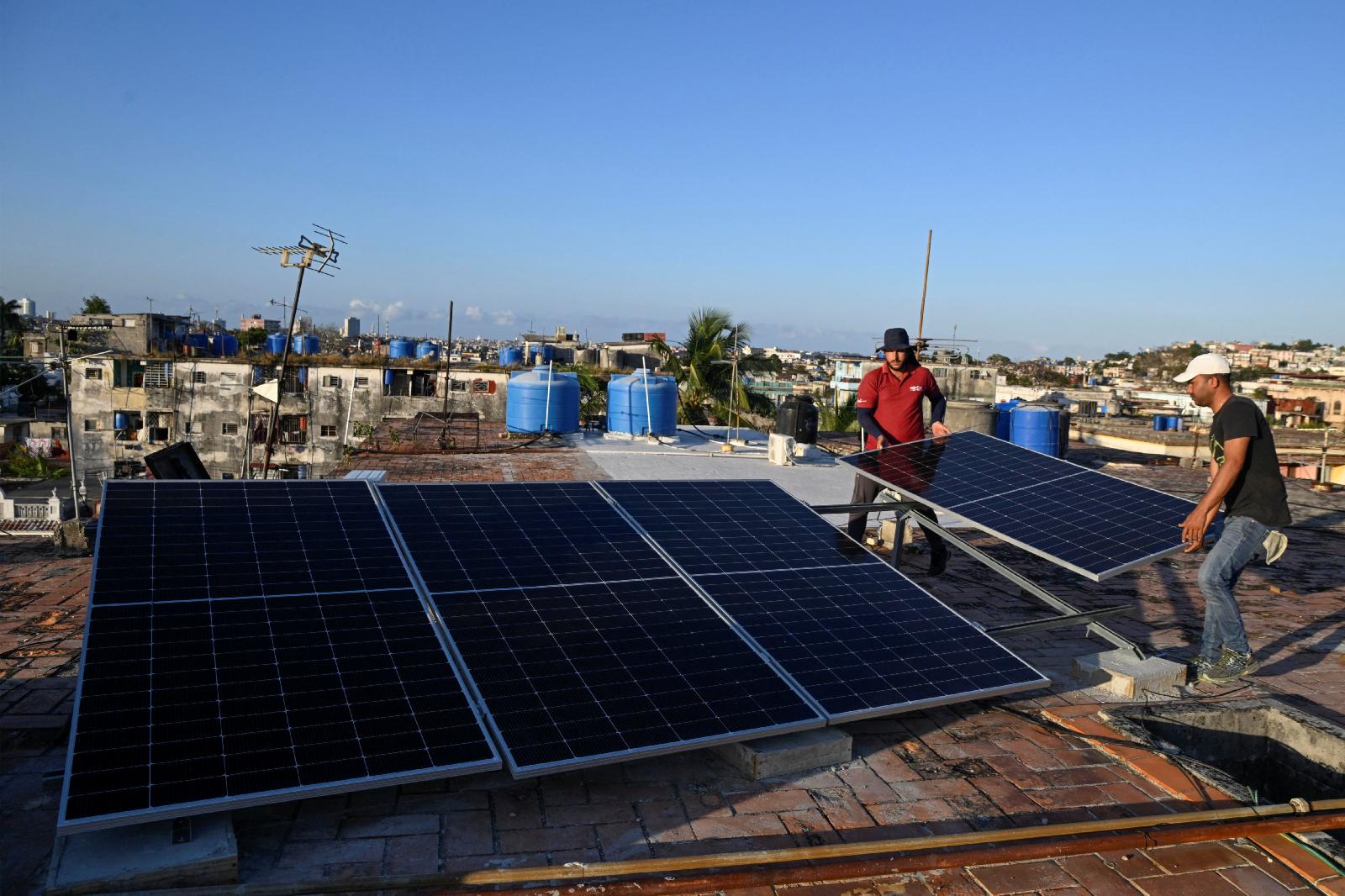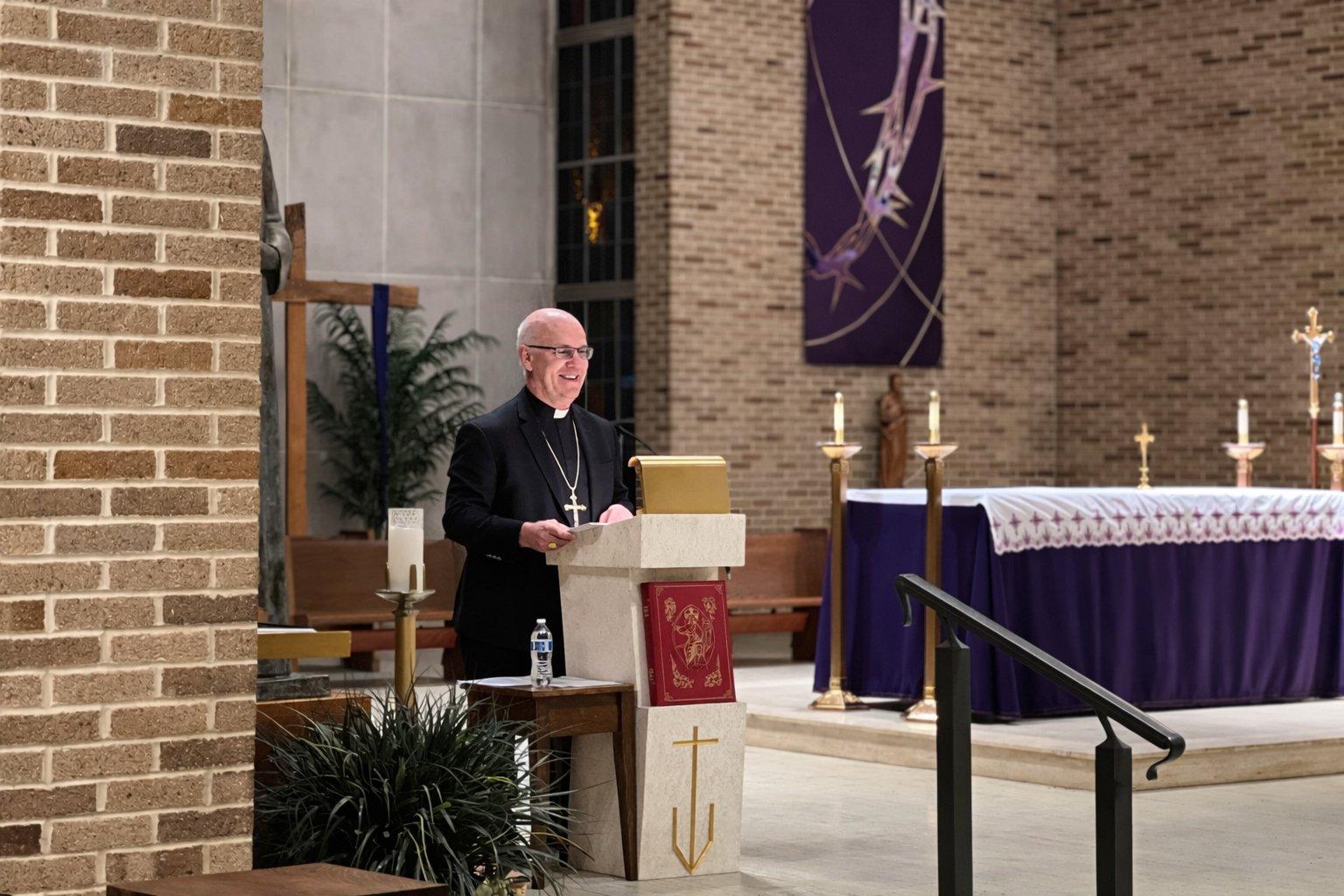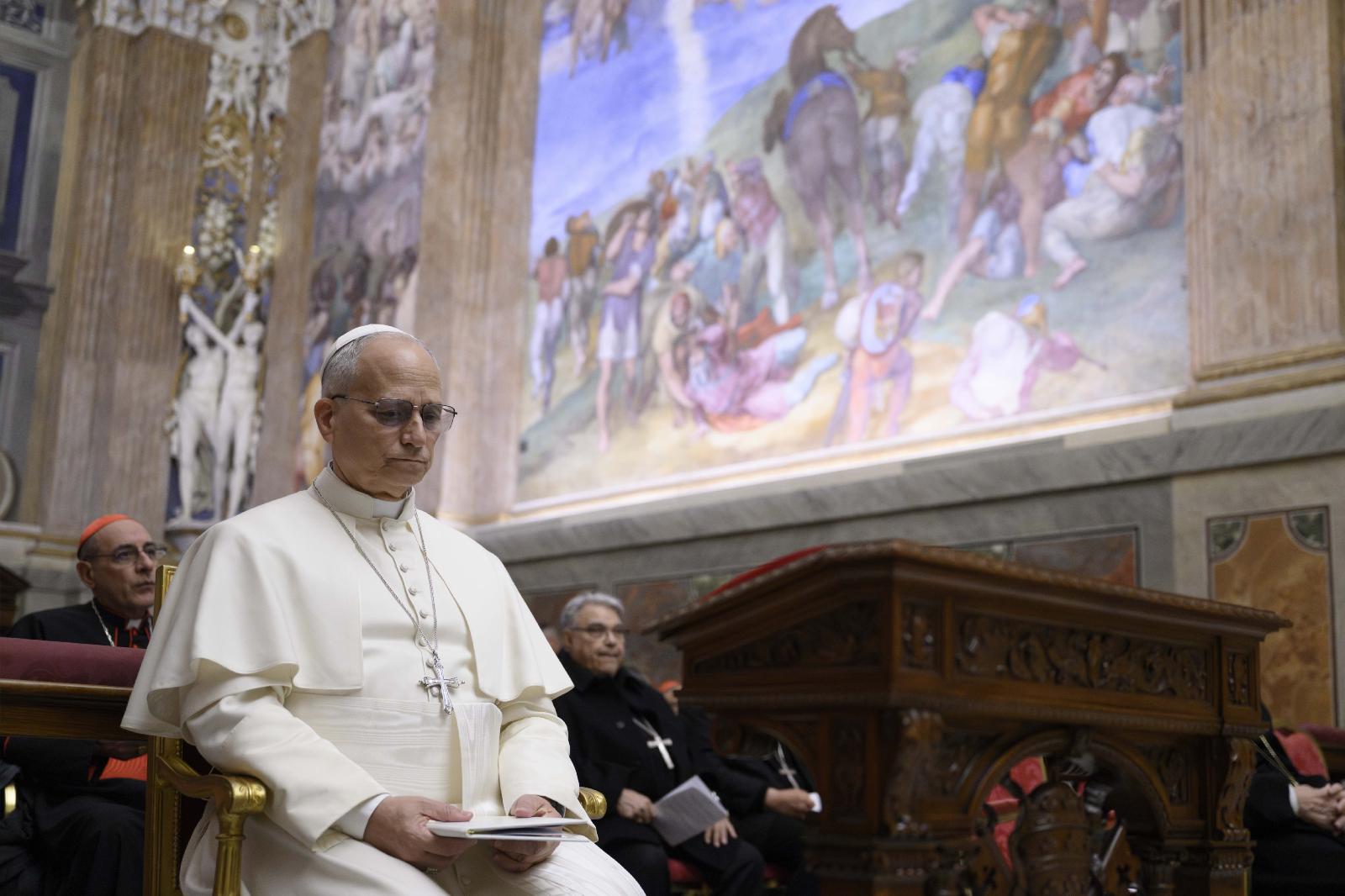The world is fractured. The climate talks reflected that.
BELÉM, Brazil — The U.S. snubbed the talks. Petro-states and fossil-fuel-hungry emerging economies got most of what they wanted. And Europeans struggled to show they were prepared to lead the effort to squelch global warming.
Two weeks of climate negotiations hardly ended in triumph Saturday, following a U.N. summit whose final days included a fire that interrupted discussions about how to stop burning the planet.
But they did end, with a deal that even critical delegates said shows that a divided, leaderless collection of nearly 200 nations can make some progress toward the goal of averting heat waves, deepening droughts and increasingly destructive storms.
The delegates shoved the hardest decisions off onto future summits, however. Those included debates about accelerating previous pledges to switch away from fossil fuels, and about reducing trade barriers that hinder the flow of clean energy technologies.
The result exposed the world as it is — haltingly and slowly tackling climate pollution, and fragmented by rising economic nationalism and protectionism, rather than the united, optimistic community of nations that produced the Paris climate agreement 10 years ago.
“I would have preferred a more ambitious agreement,” U.K. Energy Secretary Ed Miliband said in the COP30 venue in Belém, Brazil, a port city selected for the symbolic importance of its presence in the Amazon. “But at a time of great political challenge — when you’ve got America, for example, that has left the Paris Agreement — I think this is a significant moment.”
French environment minister Monique Barbut said her country is “not opposing the deal because there’s nothing particularly bad about it. It’s a fairly bland text. This text does not raise our overall ambition, but it does not undermine previous progress.”
Other leaders’ reactions were far more dour. Colombian President Gustavo Petro, for example, expressed disappointment that the final text did not include a proposal backed by European and Latin American countries to urge a faster shift away from coal, oil and natural gas.
“I do not accept that the COP30 declaration does not clearly state, as science does, that the cause of the climate crisis is the fossil fuels used by capital,” Petro wrote on X. “If that is not stated, everything else is hypocrisy.”
It was all a comedown from the rapturous hopes among climate supporters that greeted Brazilian President Luiz Inácio Lula da Silva’s electoral victory in his presidential comeback three years ago, which raised expectations that the fate of the Earth would be an obsession for the new Brazilian government — with a special focus on the Amazon rainforest and the Indigenous people who live in it.
Three years ago, delegates at the COP27 climate summit in Egypt broke out in chants of “ole, ole, ole, ole, Lula, Lula,” when the newly victorious Brazilian leader took the podium at the talks.
This week, he spoke to a more muted and divided gathering.
“We must reduce greenhouse gas emissions,” Lula said Wednesday after he met with countries to break an impasse at COP30. “If fossil fuels emit too much, we must begin thinking about how to live without them.”
Here are some of the most important lessons learned from 13 days in the Amazon:
The US absence mattered
U.S. President Donald Trump is the most obvious avatar for the geopolitical shifts confronting the talks.
He campaigned for the White House on a promise — mostly fulfilled — of eradicating the Biden-era green subsidies that he blamed for rising costs. He has also used U.S. economic might to stymie other nations’ climate plans, including pressuring other governments to buy more American fossil fuels.
In the face of those threats, many countries that wanted to adopt a strongly pro-climate stance had to behave “like a silent majority,” Susana Muhamad, Colombia’s former environmental minister, said in an interview. “And so the U.S. is not here, but actually it is here in other ways.”
The possibility of Trump hitting nations large and small lingered in the background: Convening just weeks after the U.S. pressured a world maritime body to shelve a vote on establishing a climate pollution fee on global shipping, many worried what he might try at COP30 from afar.
Trump also used his domestic powers to offer some COP30 counterprogramming at home, including proposing to open wide stretches of the U.S. coastline to oil and gas drilling. That included the coast of California, whose Democratic governor, Gavin Newsom, stormed through the summit’s early days to send the message that Americans are still on board with the climate cause.
Several negotiators, including Vanuatu’s Ralph Regenvanu, said it’s better the U.S. did not attend the talks. But the prospects of a vengeful Washington seems to have quieted some traditionally vocal governments during the summit, said French diplomat Laurence Tubiana, a key architect of the Paris Agreement — including Caribbean island nations jeopardized by hurricanes that climate change is intensifying.
The U.S. also left a leadership void that exacerbated the challenge. Nations’ newly submitted plans for curbing greenhouse gas emissions through 2035 lack the heft that advocates had hoped for, and many don’t even mention efforts to wind down fossil fuels. The math is bleak: A U.N. report that tallied up those plans concluded that the world would certainly surpass 1.5 degrees Celsius of warming since preindustrial times, the Paris Agreement’s stretch goal.
“If we had been involved as a pro-climate United States, it would not look like this at all,” former U.S. climate negotiator Sue Biniaz said of where things stood Friday evening.
The White House maintained Saturday that Trump is the real world leader on energy policy, saying in a statement that “countries are lining up to partner with the U.S.”
“The President has set a strong example for the rest of the world by reversing course on the Green Energy Scam and unleashing our natural resources, like beautiful, clean coal and natural gas, to strengthen our grid stability and lower energy costs,” spokesperson Taylor Rogers said.
BRICS ascendant and Saudis emboldened
The key beneficiaries of the U.S. absence were a group of countries allied by their sense that the West is fading and the 21st century is theirs for the taking.
These “BRICS” — named after their core members Brazil, Russia, India, China and South Africa — have differing interests, but are often united at climate talks in their rejection of efforts by wealthy countries to get them to shift away from fossil fuels more quickly.
Those five countries will be responsible for 46 percent of annual global greenhouse gas emissions in 2025, according to an EU database.
The “U.S.-sized hole” at COP30 created a vacuum for those countries to assert their own priorities, said Li Shuo, China Climate Hub director at the think tank Asia Society Policy Institute. He said the U.S. under past Democratic presidents prodded countries into setting loftier goals.
But now a “rebalancing” of power is taking place that favors emerging economies, combined with a focus on tangible next steps to combat climate change given challenging domestic politics across the world, Li said.
“The zeitgeist of global climate politics is you look across the world, most of the countries — in particular the major emitting countries — are having a hard time domestically, economically and also on their climate agenda,” he said. “Countries need to deliver domestically, and there’s a big gap between those rhetorical aspirations and what they’re doing at home.”
That sense of ascendance was reinforced when Turkey, a major emerging economy, beat out Australia, a country with one of the highest median incomes in the world, to host next year’s talks.
The BRICS’s fellowship was also on show in the final meeting of the talks when Russia’s delegate accused Colombia of behaving like ”children who want to get your hands on all the sweets.” That remark came after Colombian delegates complained about Brazil’s oversight of the legal proceedings that formalized the deal.
Without the U.S. and aided by the Brazilian presidency, the emerging countries set up a barrier to efforts by the Europeans to lay out concrete steps and waypoints for the move off coal, oil and gas. On Friday, the Brazilians released a proposal for the deal that a European negotiator summed up as “a BRICS text.”
Stopped in the corridor, Chinese Deputy Climate Minister Li Gao expressed approval, calling it a “delicately balanced text.” An Indian delegate shared the same sentiment in comments from the cavernous plenary floor.
The final deal won some minor concessions from the EU. But the deal was still shaped by the BRICS and defended by petro-states.
Leaked notes from a closed doors meeting between ministers on Friday, seen by POLITICO, showed how fractious the talks become.
A Saudi delegate refused to countenance any deal that constrained the Kingdom’s control over its own industries and resources. That infuriated the Europeans. In a statement he later publicized, EU Climate Commissioner Wopke Hoekstra complained that this was backtracking on a 2023 agreement that explicitly committed the world to shift away from fossil fuels. “What on Earth did we then do two years ago?” Hoekstra asked.
“The dissatisfaction of the Arab group and the Saudis two years ago is being played out here, and they are trying to eviscerate” the 2023 deal, said a European diplomat.
The EU is weakened
Together with the U.K., which had set one of the world’s most ambitious goals, the EU tried to fill the void of U.S. diplomatic and economic heft to push the deal toward a more consequential outcome.
They forced the talks into overtime by refusing to back a deal that did not address the need to move away from fossil fuels in some small way. Those European countries also fought to water down the deal on funding for projects that would help poor countries defend themselves against climate change.
But the EU entered the talks bruised from year-long internal battles among its 27 member countries over a new climate goal for 2040.
“I don’t see a leadership position in the EU right now. I see an EU that is conservative,” said Muhamad, the former Colombian minister, while noting that some countries such as the Netherlands, Spain and Slovenia wanted more aggressive climate action. “But not the EU as a bloc.”
Those divisions carried into the talks, with two diplomats saying Poland and Italy had initially not endorsed the “road map” for moving away from fossil fuels, meaning the EU was unable to endorse the idea. The bloc eventually put forward its own proposal.
“Which road map? Where is it? Where is it?” South African delegation head Maesela Kekana told POLITICO when asked questions about the EU-backed proposal. “You talk too much to the rich countries.”
The talks ultimately produced a side deal for a road map process that was not included in the official decision. It was a consolation prize for the EU and other countries that backed the concept, but one that reinforced the reality that the emerging economic powers that blocked it from the final text were in the driver seat right until the finish line.
China profits from the status quo
A major question facing the talks was whether China, the world’s top clean energy producer, would try to strengthen the U.N.’s institutions and the call for more aggressive climate action. It did not.
“Credible climate leadership would require pushing ambition and bringing others along,” said Kate Logan, director of China Climate Hub and climate diplomacy at the Asia Society Policy Institute. “I hope to see that from China going forward.”
But the status quo benefits China, which sells a bulk of the world its clean energy materials and equipment but is also the world’s top spewer of greenhouse gases. Its new 10-year plan for slashing carbon emissions further drew criticism from activists and diplomats who saw it as mild.
Rather than urge all nations into bolder stances to cut planet-cooking pollution, China used the forum to press its own interests.
China capped a multiyear quest to elevate a call for bringing attention to the effects of unilateral trade measures to the official U.N. climate agenda.
China has exported an oversupply of solar and wind equipment, batteries and electric vehicles at sharply reduced prices, generating retaliatory tariffs from countries that want to protect their domestic manufacturers. It has contended this is unfair and harms global climate efforts by raising prices on the market’s most widely available products.
China’s trade endeavor runs counter to the political discussion in European capitals and the U.S., which has sought to keep Chinese goods out of their markets. Trump has attempted to do this with tariffs, while the U.S. earlier tried to counteract Chinese imports by using the massive domestic tax breaks in former President Joe Biden’s Inflation Reduction Act, which Republicans obliterated in July.
But Beijing got rhetorical support from COP30 President André Aranha Corrêa do Lago, who heaped praise on China’s cheap tech for helping emerging economies affordably transition to cleaner energy. Many of those countries backed China’s trade push, and COP30 applied little pressure on China to do more on anything else.
The Earth keeps warming
Brazilian officials and veterans of the climate talks saw even getting through this conference as a victory. The goal was to preserve multilateral diplomacy even as the chances of adhering to the 1.5-degree goal appear dead.
“Optimism is probably not the sentiment we could have these days in the world economy, in the world situation,” Tubiana said. “So my response is always we have to do whatever we can because every fraction of a degree counts.”
The verbiage shift lays it bare: Diplomats here now speak of limiting “overshoot” of the target, which U.N. Secretary-General António Guterres called a “grim assessment.” Just four years ago at COP26 in Glasgow, it was “Keep 1.5 Alive.”
The decision in Belém will do little to help those matters in the immediate term, as it essentially punts anything new and tangible to future years. Even then, the results are inconclusive.
Many nations wanted to highlight the gap between national climate plans and the cuts needed to stay onside of the 1.5-degree goal. They got a voluntary initiative to track and support efforts to implement climate policies, but the deal fell short of a more ambitious proposal that would have more closely monitored nations’ progress in getting rid of fossil fuels.
While poorer governments pressed for countries to triple an earlier $40 billion commitment to provide grants and cheap finance to help them cope with a warmer world, the text merely “calls for efforts” to do so by 2035.
Yet the climate realities are evident and mounting in every corner of the globe.
Marshall Islands climate envoy Tina Stege at a Tuesday press conference rattled off recent catastrophes preceding COP30: Hurricane Melissa, a Category 5 cyclone that hit Jamaica on Oct. 28, and Typhoon Kalmaegi, which tore through Vietnam and the Philippines earlier this month.
Those events underscored the need to kick fossil fuels as fast as possible, she said.
“It’s just part of a litany of disasters that has now become part of our daily news,” Stege said.




















:quality(85):upscale()/2025/08/14/650/n/1922283/470aeb83689df49cdc1bb6.14084110_.jpg)
:quality(85):upscale()/2023/10/03/668/n/1922283/1f15c8a9651c2d209e5eb5.32783075_.jpg)
:quality(85):upscale()/2025/09/09/891/n/1922283/7222624268c08ccba1c9a3.01436482_.png)
:quality(85):upscale()/2023/09/18/918/n/1922398/a1136b676508baddc752f5.20098216_.jpg)
:quality(85):upscale()/2025/10/09/670/n/1922283/00b944c868e7cf4f7b79b3.95741067_.jpg)
















